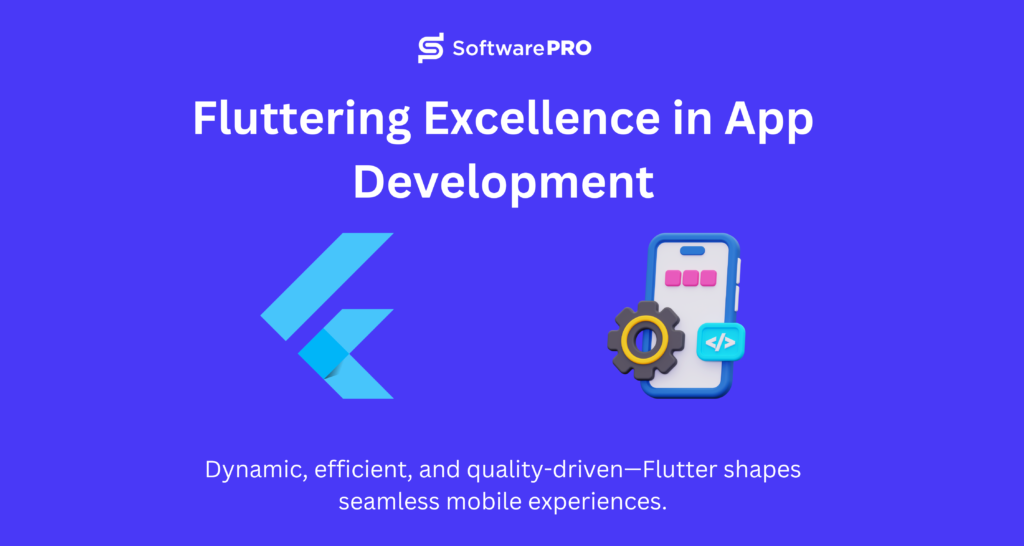We are living in the era of mobile apps because, for every small to big need, we have an app. In fact, apps are gaining more popularity than desktop-based applications because mobile is compact, and using these apps become even easier. In such a scenario, the importance of mobile app development also increases to a great extent. To keep up with the growing needs of mobile apps, certain frameworks assist in streamlining the entire development process. These frameworks are a savior for mobile app developers as they provide them with tools and strategies to build inventive apps.
Would you like to know more about these amazing frameworks? If yes, then let’s get started!
Flutter: The Blooming Star

Flutter is one of the most promising and reliable frameworks for mobile app development. The giant Google developed it and is rapidly gaining attention. Flutter is synonymous with quality when it comes to developing smooth and seamless mobile apps. It is regarded for its power to build natively compiled applications for mobile, web, and desktop from a single codebase. What sets Flutter apart is its use of the Dart programming language and its quite efficient rendering engine. The framework’s hot reload feature permits developers to see the results of changes almost instantly.It makes the process faster and more dynamic.
Main Advantages:
- Single codebase for multiple platforms.
- Rich set of pre-designed widgets.
- Excellent performance comparable to native apps.
Con:
- Limited third-party libraries due to reliance on Dart.
React Native: Bridging Gaps
React Native, created by Facebook, enables developers to build mobile apps using JavaScript and React. Its biggest strength is that you can write your app’s logic in JavaScript while your app’s appearance is still fully native. React Native apps can run as smoothly as native apps but with the ease and speed of development that comes with JavaScript.
Main Advantages:
- Shared codebase between iOS and Android.
- Large community support and rich ecosystem.
- Hot reloading for seeing changes in real-time.
Con:
- Might struggle with performance in complex, graphics-intensive applications.
Ionic: Web Technologies at the Forefront
Ionic allows developers to use web technologies like HTML, CSS, and JavaScript to build cross-platform mobile applications. This framework is ideal for developers familiar with web development looking to transition into mobile app development. Ionic focuses on the frontend user experience or UI interaction, which handles all the look and feel of the app.
Main Advantages:
- Easy to learn for web developers.
- Strong integration capabilities with Angular, React, and Vue.
- Access to a rich library of plugins and UI components.
Con:
- Can face performance issues on older devices due to web technology reliance.
Xamarin: The .NET Advantage
Xamarin, a Microsoft-owned framework, enables developers to use .NET and C# to create Android, iOS, and Windows apps. It offers a unique approach where you can share code across platforms while producing apps with native performance and look. Xamarin is a great choice for those seeking leverage. NET’s robustness and C#’s power.
Main Advantages:
- High code reusability across platforms.
- Strong support from Microsoft and an active community.
- Native performance and user interface.
Con:
- Larger app size due to the inclusion of .NET runtime and libraries.
NativeScript: Direct Access to Native APIs
NativeScript is an open-source framework that allows you to use JavaScript, Angular, Vue.js, or TypeScript to build native mobile apps. What makes NativeScript special is its direct access to Android and iOS APIs. It means there is no need for a bridge or wrapper to access native elements. It leads to better and highly optimized performance.
Main Advantages:
- Direct access to native APIs.
- Use of popular languages like JavaScript, Angular, and Vue.js.
- Strong integration with Vue.js and Angular.
Con:
- Steeper and a slower learning curve due to direct access to native APIs.
Choosing the Right Framework
Selecting the right framework for your mobile app development project depends on various factors like project requirements, developer skill set, and the intended audience for the app. Flutter and React Native lead the race with their cross-platform capabilities and rich feature sets.
Ionic offers a familiar ground for web developers. At the same time, Xamarin and NativeScript provide unique approaches to app development, especially for those looking to leverage existing skills in .NET and direct access to native APIs, respectively.
In 2024, the key to successful mobile app development lies in understanding and aligning these frameworks’ strengths with your project’s goals. Whether Flutter’s single codebase efficiency, React Native’s JavaScript-based approach, or NativeScript’s direct native API access, each framework offers a unique path to creating impactful and efficient mobile applications.
The future of mobile app development is bright and full of possibilities. These frameworks are standing at the forefront of this innovation. By going with the right tool for your needs, you can build functional applications that deliver a seamless user experience.
 Exciting news! Get 15% off on SEO Services
Exciting news! Get 15% off on SEO Services